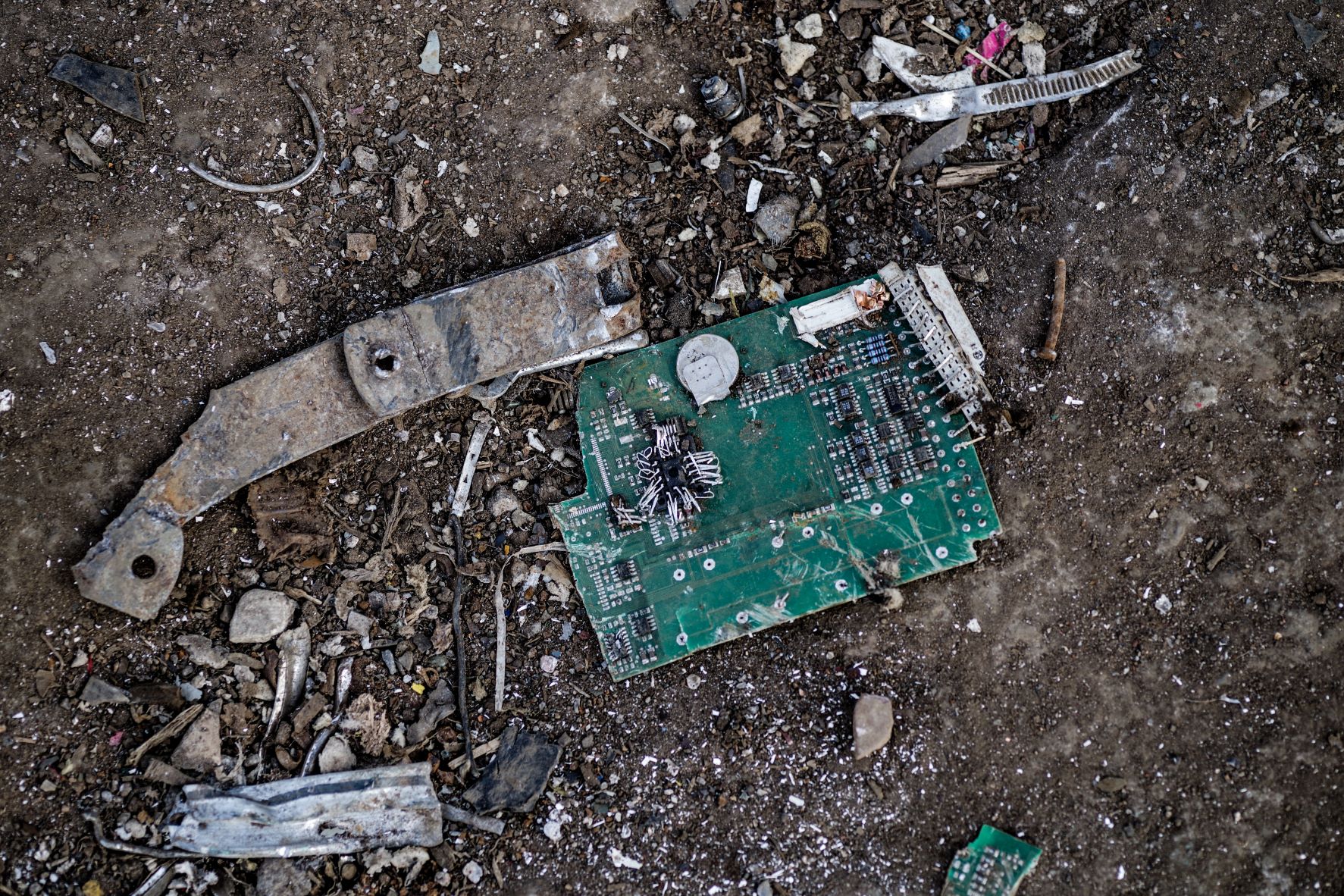
Electronic waste (e-waste) contains a range of materials, including precious metals, which could be salvaged for reusable components and continue to offer economic value.
Dr Aidan Marc Wong investigates the central role of informal labour, in particular the karung guni in Singapore and Malaysia, who collect, disassemble, sort, and transform recycling and e-waste into raw materials for reuse. Dr Wong discusses how such informal labourers can identify raw materials that contain unrealised value, and can give discarded items a new lease of economic life rather than letting them find their way to dump sites.
Read more about his research: https://doi.org/10.1111/gec3.12616
Transcript:
Hello and welcome to ResearchPod. Thank you for listening and joining us today.
In this episode, we’ll be delving into the research of Dr Aidan Marc Wong of the Singapore Management University, who has been researching the role of informal labour in regional electronic waste recycling industries, with a focus on the karung guni – rag-and-bone waste collectors - in Singapore and Malaysia.
Electronic waste (e-waste) contains many reusable materials, including precious metals. Over the decades, e-waste has been discarded resulting in the loss of these useful reusable components and their potential economic value. Dr Wong investigates the central role of informal labour, in particular the karung guni in Singapore and Malaysia, who collect, disassemble, sort, and transform seemingly ‘useless’ waste commodities into raw materials for use in the production of new commodities. Dr Wong discusses how such informal labourers can identify raw materials that contain unrealised value, and can give discarded items a new lease of economic life rather than letting them find their way to dump sites. His article supports the view that certain types of waste are never truly ‘waste’ and that the economic life of a commodity does not need to end when it is discarded.
In his article ‘Valued waste/wasted value: Waste, value and the labour process in electronic waste recycling in Singapore and Malaysia’, Dr Wong adopts Karl Marx's circuit of capital to analyse the flows of value in recycling industries. This is depicted as a 17-stage cycle involving the creation and movement of value within a production network. The circuit starts with the purchase of waste, and moves through several stages, including the identification of forms of value, and the sorting and selling of e-waste constituents back into production processes. The e-waste circuit of capital presented illustrates the cycling of e-waste from a money form (the initial purchase), through commodity and production forms (dissembling into components, selling and integration into new products), and eventually back to a money form (when new commodities are resold).
Dr Wong draws attention to the importance of informal labour in the creation of value from e-waste, suggesting that ‘labour power’ is a key economic actor at several stages of the e-waste recycling network. He uses the example of the karung guni in Singapore and Malaysia. Karung guni is a local term for travelling waste collectors, often likened to the traditional rag-and-bone men, who buy waste commodities that have been discarded from households or businesses that they perceive to be of value, including e-waste. The karung guni are the starting point for a series of material processes that transform seemingly ‘useless’ commodities into raw materials for new rounds of production.
Distinguishing between electronic ‘waste’ and components that have intrinsic value (or ‘latent’ value), so facilitating the shift from ‘waste’ to ‘resource’ or ‘raw material’, requires technical abilities that include the testing of components, and a knowledge of electrical circuitry and the functioning of electrical and electronic products. These are complex skills that allow the karung guni to see the value contained within e-waste, and although not all karung guni possess these skills, many do. Informal labour such as the karung guni who possess such skills are pivotal to the effective functioning of the e-waste circuit of capital – the valuing and valuation of e-waste – and Malaysia’s and Singapore’s regional e-waste recycling industries rely on them.
Dr Wong highlights the contribution of the karung guni at each step of the e-waste circuit of capital, emphasising their importance throughout the process. Their contribution to the cycle starts with the collection of unwanted and discarded e-waste from households and small and medium businesses. At this point, the karung guni value the e-waste and pay a nominal sum to the householder or business. The karung guni continue to play a key role throughout the early stages of the e-waste circuit of capital, by dismantling and sorting the e-waste, before packaging for subsequent sale to repair shops and/or e-waste wholesalers. The success of a karung guni, and therefore the e-waste circuit of capital, lies in their ability to conceptualise the value of the commodities they buy, i.e., their ability to discern ‘waste’ from valuable raw materials.
The role of the karung guni in Singapore’s and Malaysia’s regional e-waste recycling industries is not passive - they have an agentic role in value creation and the structuring the e-waste recycling industry. The industry is reliant on their initial valuation and primary processing of e-waste. The karung guni dismantle and cannibalise electronic equipment to salvage working components that can be sold to electrical and electronic repair shops, such as computer servicing and mobile phone repair shops.
Interviews with karung guni conducted in 2012 and 2019 in Singapore, Kuala Lumpur, and Penang in Malaysia, gathered details of karung guni practices. It was revealed in these interviews that a sizeable proportion of karung guni were engaged in the sale of working components to electronics and electrical repair shops on a regular basis. When evaluating e-waste, in order to maximise the financial return, the karung guni consider the type, age, and condition of the e-waste. For example, newer computers, televisions, and handsets are more likely to have parts that can be reused by electrical servicing shops. Working or repairable e-waste has more value than non-working, unrepairable items, and computers with hard drives are more valuable than those without. This valuing of e-waste that leads to discerning purchasing, and the sorting and separating of high-quality reusable components, demonstrates the agentic role of karung guni in determining the value of e-waste and which e-waste enters the circuit of capital.
The most successful karung guni demonstrate strong technical abilities that allow them to test components to identify those that are functioning properly, and a working knowledge of electrical circuitry and the functioning of electrical and electronic equipment. The sale of working components to repair shops is more lucrative than the sale of primary processed e-waste as scrap to wholesalers. The karung guni can earn up to 20% more from sales of working components. The latent use value of e-waste is therefore realised as the exchange value through the labour process. The ability of the karung guni to consider the market and the potential demand for commodities further underscores their agency in the e-waste recycling industry; their purchases and sales are not random or haphazard but are carefully considered to bring the greatest financial rewards.
Of the future for these skills and karung guni who possess them, Dr Wong points out “E-waste management in cities remains a key challenge faced by urban managers, and indeed this extends to various other waste streams as well. So, how can we better support positive changes in waste management behaviour among consumers?”
The ability of informal labour, such as the karung guni in Singapore and Malaysia, to discern the latent value of e-waste is crucial to the functioning of regional e-waste recycling networks. The collection, valuation, and primary processing of e-waste by the karung guni are crucial agentic roles that feed into downstream economic processes and the structuring the e-waste recycling industries in Malaysia and Singapore.
Thanks for listening. Don’t forget to subscribe to ResearchPod for more detailed breakdowns of the latest academic research. See you next time!
Also published on https://researchpod.org/earth-environment/valued-waste-wasted-value-e-waste-recycling-in-asia
Podcast is also available on Spotify, Apple iTunes, Google Podcasts, and many more (please use search term “ResearchPod”).
See More News
Want to see more of SMU Research?
Sign up for Research@SMU e-newslettter to know more about our research and research-related events!
If you would like to remove yourself from all our mailing list, please visit https://eservices.smu.edu.sg/internet/DNC/Default.aspx

